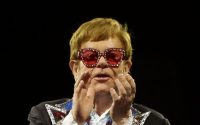Breastfeeding moms who get COVID-19 vaccine pass protection onto baby, study finds

CDC: More than 4M vaccine doses administered in one day
Fox News medical contributor and Johns Hopkins’ Dr. Marc Siegel joins ‘America’s Newsroom’ to discuss new vaccine milestone.
Nursing mothers who opt to get the COVID-19 vaccine may pass protective antibodies to their babies through breast milk for several months post-jab, a new study suggests. The study, which only involved five mothers who provided researchers with frozen breast milk samples, focused on the Pfizer-BioNTech coronavirus vaccine.
Researchers from Washington University School of Medicine in St. Louis tracked the levels of antibodies in the breastmilk from a baseline before the mothers’ first dose of vaccine, and then on a daily basis for the following 80 days, according to a press release, posted on EurekAlert.org.
The researchers saw elevated levels of the IgA and IgG antibodies immediately following the first dose of vaccination, with both antibodies reaching immune-significant levels within 14 to 20 days post-first dose.
“Our study showed a huge boost in antibodies against the COVID-19 virus in breast milk starting two weeks after the first shot, and this response was sustained for the course of our study, which was almost three months long,” Jeannie Kelly, MD, study author and assistant professor of obstetrics and gynecology, said. “The antibodies levels were still high at the end of our study, so the protection likely extends even longer.”
DON’T SKIP SECOND COVID-19 VACCINE DOSE, EXPERTS WARN
The study, which is peer-reviewed and was published in the American Journal of Obstetrics and Gynecology, is thought to be the first to track levels of antibodies in frozen breast milk over time. The team acknowledged that the study is limited due to small size, but said the findings are encouraging nonetheless.
None of the currently approved COVID-19 vaccines in the U.S. included sufficient data in the emergency use authorization application regarding safety in pregnant or breastfeeding women. Subsequent studies are ongoing but for now the CDC states that the vaccines are not thought to be a risk for lactating people or their infants, and that lactating people may choose to be vaccinated.
WHAT IS A COVID-19 VACCINE PASSPORT AND HOW WOULD IT WORK?
Kelly said her team’s work also helps to disprove the “really scary, misleading posts on social media that are designed to scare moms.”
“We’re now seeing a cascade of new data that indicate maternal vaccines are also going to help protect babies – both through transfer of antibodies through the placenta during pregnancy and through the breast milk during lactation,” Kelly said. “This is information we didn’t have a few months ago and it’s really helping us better counsel our patients who are considering getting the vaccine. I’m telling my pregnant and breastfeeding moms that I strongly recommend that they get vaccinated as soon as possible.”
The researchers called for further studies of maternal COVID-19 vaccination to characterize the length of antibody production in breast milk and the effect on infant infection rates.
Source: Read Full Article


